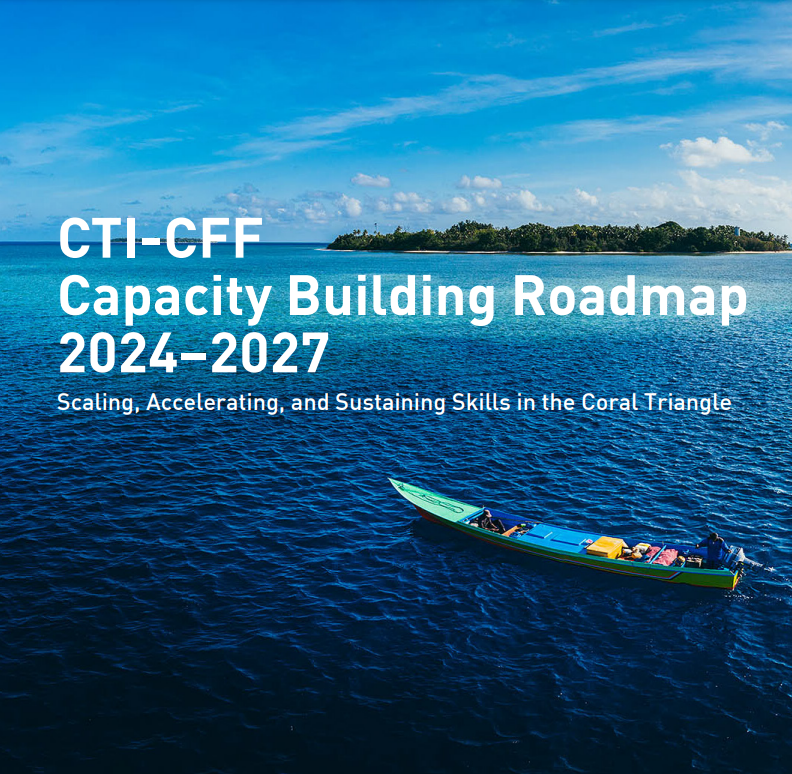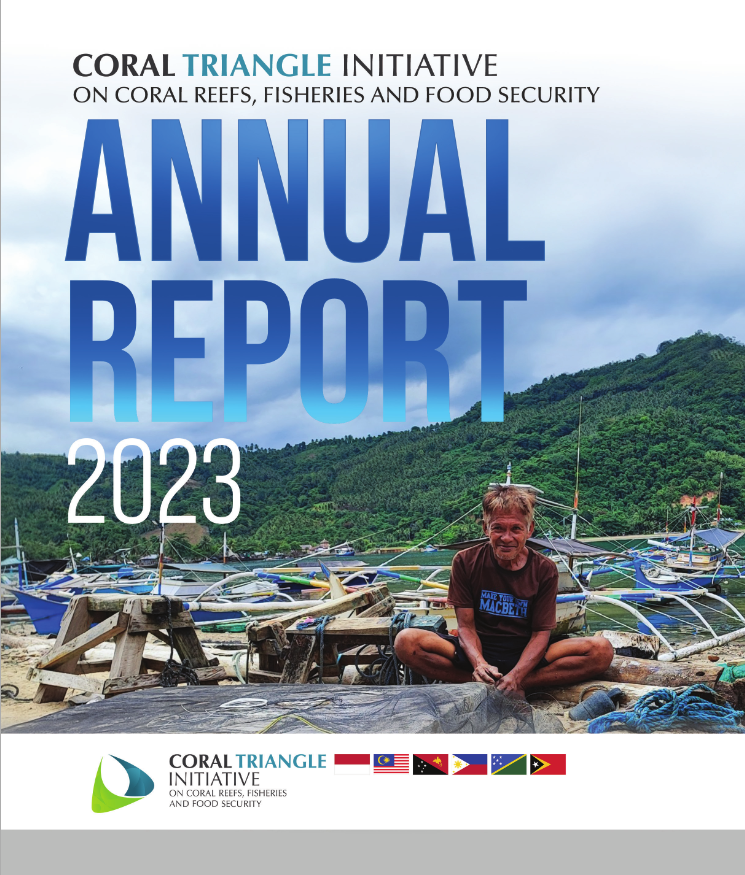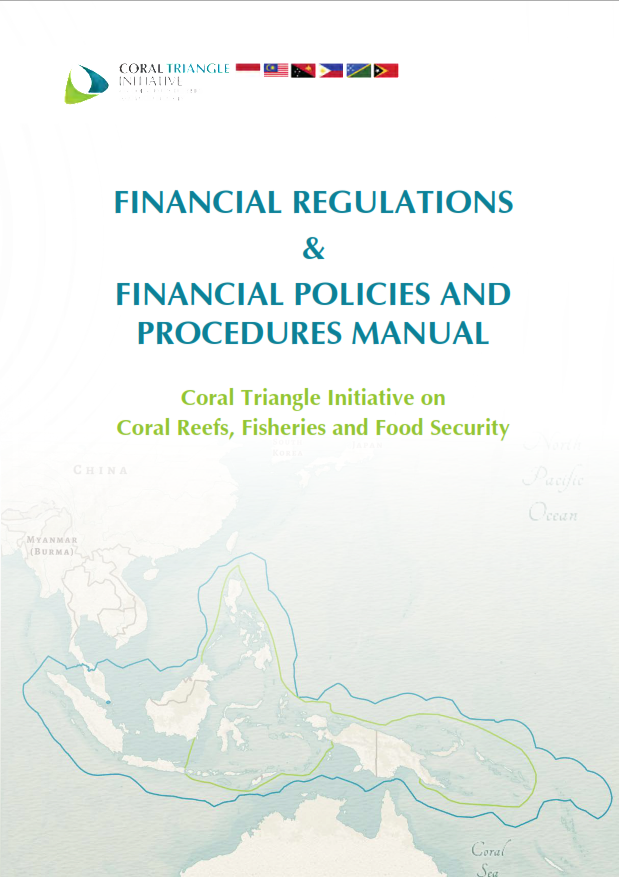Workshop on Protecting Marine Migratory Species and Achieving the 30x30 Target Through Transnational Approaches
Workshop on Protecting Marine Migratory Species and Achieving the 30x30 Target Through Transnational Approaches
The Workshop on Protecting Marine Migratory Species and Achieving the 30x30 Target Through Transnational Approaches was held in Manado, Indonesia from May 15 to May 17, 2023. It was held possible through collaboration of WWF Coral Triangle Program, EU Ocean Governance Project and the CTI-CFF Regional Secretariat. The workshop also accommodated the Threatened Species Working Group meeting for the second quarter this year, attended by four CT countries who shared a lot of important achievements and data.
It brought together member countries and partners, and it was a great opportunity to exchange knowledge and strategize ways to protect marine migratory species and work within the Coral Triangle region, towards achieving the Global Biodiversity Framework’s 30 by 30 target. 30 by 30 (or 30x30) target aims to conserve 30% of the world’s surface by 2030 and is a worldwide initiative for governments to designate 30% of Earth's land and ocean area to be conserved as protected areas or other effective area-based conservation measures (OECMs) by 2030.
Dr. Mohd. Kushairi bin Mohd. Rajuddin, CTI-CFF Regional Secretariat Executive Director, in his welcoming remarks wishes a fruitful discussion on how the parties can work together to protect species and achieve the 30x30 target. He believes that transnational approaches are crucial in achieving this goal, as the threats facing marine migratory species are often complex and require coordinated efforts across different countries, particularly in the Coral Triangle Region.
Veda Santiaji from WWF CTP and Puri Canals from EU Ocean Governance for MPAs program continued with an overview of the program goals and workshop objectives. The program goal is fostering regional and international cooperation relevant to the protection and restoration of marine and coastal ecosystems, to contribute to the achievement of AICHI Target 11 and SDGs. It will be achieved through increasing knowledge, improving practice, strengthening knowledge exchange, and creating dialogue among MPA managers.
The workshop began with a series of presentations highlighting key elements and progress of the Ocean Governance project and its cooperation with the Coral Triangle Initiative on Coral Reefs, Fisheries, and Food Security (CTI-CFF). These presentations also touched upon global, regional, and national policies relevant to global marine protection targets. Puri Canals, the expert in ocean governance, presented the key elements and progress of the Ocean Governance project. Charles Besancon discussed the road to Kunming-Montreal and Target 3 of the 30x30 initiative.
The morning session also included presentations on the CTI-CFF Regional Plan of Action by Mr. Christovel Rotinsulu, the Deputy Executive Director for Program Service. Claudia Binondo from the ASEAN Centre for Biodiversity highlighted the centre’s support to ASEAN on Target 3 of the Convention on Biological Diversity’s Global Biodiversity Framework (CBD GBF), and CTI-CFF continued with a discussion on transboundary cooperation under the Marine Protected Areas (MPA) Working Group.
After lunch, the focus shifted towards the Convention on Migratory Species (CMS) and the ASEAN Centre for Biodiversity's support to it. Claudia Binondo presented the centre’s support to the CMS, emphasizing the importance of international collaboration in protecting migratory species. The remainder of the afternoon was dedicated to presentations from each country, highlighting their progress in achieving Aichi Biodiversity Target 11 and their ambitions and challenges in reaching the new Target 3 of the CBD GBF.
Day 2 began with an introduction to the day's agenda, followed by discussions on ecological considerations for migratory corridors and transboundary Marine Protected Areas (MPAs). Konservasi Indonesia presented Conservation International's support to migratory corridors and transnational MPAs, while the National Research and Innovation Agency (BRIN) of Indonesia shared insights from their research on this topic.
During the morning session, there was an open discussion allowing participants to exchange ideas and perspectives. The workshop then delved into international cooperation for successful transboundary marine corridors and MPAs. Presentations were made on the ATSEA-2 Project by Deti Triani and Konservasi Indonesia by Budiati Prasetiamartati. Lessons learned from the Turtle Islands Heritage Park were also discussed.
After lunch, the workshop focused on indigenous peoples' and community conserved areas and territories (ICCAs) and their relevance to migratory corridors and transboundary approaches. Cindy Julianti from the ICCA Consortium provided examples and insights into the importance of ICCAs in marine conservation. Another open discussion session allowed participants to contribute their perspectives.
Later in the afternoon, participants divided into two groups to discuss capacity gaps for transboundary and migratory species conservation, identifying opportunities, key flagship species, and main challenges. Two specific seascapes, the Sulu-Sulawesi Seascape (Indonesia, Malaysia, and the Philippines) and the Bismarck Solomon Seascape (Indonesia, Papua New Guinea, and Solomon Islands), were examined in detail.
The day concluded with a presentation on the role of MPA Manager networks in supporting migratory species and corridors, given by Puri Canals. Following this, participants engaged in group discussions to develop key messages from the workshop and identify the next steps for collaborative efforts in protecting marine migratory species and achieving the 30x30 target.
The following day, all participants joined a field trip to Lembeh Strait, Bitung Municipality, North Sulawesi. The location hosts a marine protected area established by the Municipality government upon demand by the community. The area, especially the strait of Lembeh, is famous for its tuna fishery as well as migration pathway of many kinds of sharks and rays. During the visit, participants learned about the gazettement process of the MPA from the Provincial Marine and Fishery Agency.



